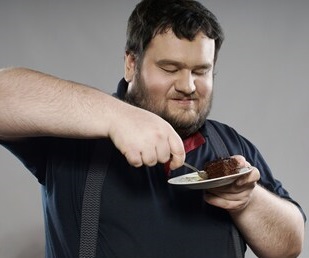It is that time of the year again where we begin to reflect upon the past twelve months (perhaps groan at some of the decisions made) and consider ways in which we can embrace the new year by setting a personal goal or implementing a change to our lifestyle. Most of us are well versed in the making (and breaking) of ‘Resolutions’, but how familiar are we with the traditions behind the practice?
The making of New Year’s Resolutions has been around for thousands of years in some form or another. Ancient Babylonians may have been the first, around 4,000 years ago, to stay in favour with their gods. History.com (2020) indicates that the Babylonians “made promises to the gods to pay their debts and return any objects they had borrowed. These promises could be considered the forerunners of our New Year’s Resolutions”.
 Ancient Rome also had a similar celebration for the New Year. The month of January is named after their two-face god, Janus. History.com (2020) states that the Romans believed that as “Janus symbolically looked backwards into the previous year and ahead into the future, the Romans offered sacrifices to the deity and made promises of good conduct for the coming year.”
Ancient Rome also had a similar celebration for the New Year. The month of January is named after their two-face god, Janus. History.com (2020) states that the Romans believed that as “Janus symbolically looked backwards into the previous year and ahead into the future, the Romans offered sacrifices to the deity and made promises of good conduct for the coming year.”
Moving forward to 1740, founder of the Methodist Church John Wesley, started a Covenant Renewal Service at New Year – also known as Watch Night Service. History.com (2020) reads that these “included readings from Scriptures and hymn singing, and served as a spiritual alternative to the raucous celebrations normally held to celebrate the coming of the new year. Now popular within evangelical Protestant churches, especially African American denominations and congregations, watch night services held on New Year’s Eve are often spent praying and making resolutions for the coming year.”
 Nowadays we have moved away from these religious roots and New Year’s Resolutions have more an annual routine statement of intention to try some self-improvement. However, with this year of Covid-19 lockdowns, work/education disruptions, panic loo roll buying, the usual routines have gone out of the window, which in turn has got people thinking about what it is that they are doing, how they are doing it and what is important to them going forward.
Nowadays we have moved away from these religious roots and New Year’s Resolutions have more an annual routine statement of intention to try some self-improvement. However, with this year of Covid-19 lockdowns, work/education disruptions, panic loo roll buying, the usual routines have gone out of the window, which in turn has got people thinking about what it is that they are doing, how they are doing it and what is important to them going forward.
In our discussions with applicants looking to become foster carers, much of the motivation has been to do something more family and community based with their lives, as well as changes in work patterns e.g. working from home or reduced hours.
 So, this year, instead of the usual half-baked plan to ‘eat more healthily’ or ‘get in shape’, how about thinking about a fundamental change in what you do with your life and support young people in your community. Fostering is not easy and does require time, patience and ‘stickability’ but is very rewarding to see progress forward for those young people that you have enabled by your care for them.
So, this year, instead of the usual half-baked plan to ‘eat more healthily’ or ‘get in shape’, how about thinking about a fundamental change in what you do with your life and support young people in your community. Fostering is not easy and does require time, patience and ‘stickability’ but is very rewarding to see progress forward for those young people that you have enabled by your care for them.
For more information on becoming a foster a Foster Carer and the requirements: https://ukfostering.org.uk/becoming-foster-parent/

by Lynsey Dobbs – Senior Recruitment Officer, UK Fostering
